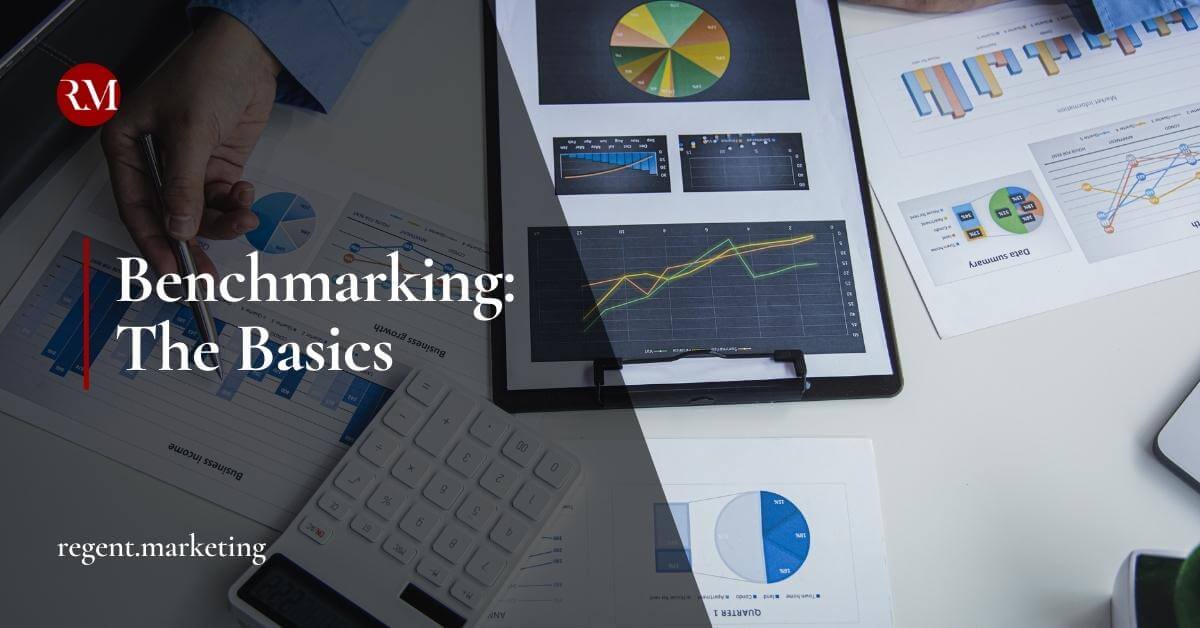
Hotel Benchmarking: The Basics
Gain deep insights into your Hotel performance and how you stand in your comp set.
 Benchmarking is a standard practice amongst most businesses. From estate agents to ecommerce they all leverage valuable data to build strategic plans. However, hotel benchmarking plays an enormous role in your marketing strategies.
Benchmarking is a standard practice amongst most businesses. From estate agents to ecommerce they all leverage valuable data to build strategic plans. However, hotel benchmarking plays an enormous role in your marketing strategies.
With benchmarking for hotels, you can get the edge on your hotel comp set. By leveraging data to increase exposure, you can identify your weaknesses, capitalise on your strengths and generally improve your entire hotel performance!
But what is hotel benchmarking? And how can you benchmark your hotel effectively?
Let’s jump into the basics.
How Hotels Use Benchmarking
In a nutshell, benchmarking your hotel is all about understanding your place in the market.
You can measure yourself against industry-leading hotels and against your current competition to identify your significance in the bigger picture. From bookings, to price ranges to trends, benchmarking identifies everything.
It also sets your hotel’s performance in perspective.
For example, you had a record-breaking season last summer. However, what if your competitors did as well? And what if they outperformed even your stellar numbers?
Benchmarking compares your hotel performance not just to yourself, but to the performance of those competitors around you.
Types of Hotel Benchmarking:
 There are 5 general types of benchmarking within the Hotel industry. These are:
There are 5 general types of benchmarking within the Hotel industry. These are:
- Internal
- External
- Performance
- Strategic
- Process
We’ll define some specific examples further down. But each and any of these metrics can be judged against a designated comp set. Each comp set used for hotel benchmarking provides valuable data, but different comp sets will be required for your hotel’s individual needs.
Comp Sets
You will benchmark your hotel in a comp set akin to one of these groups:
-
- Brand
- A measure of other hotels within your brand (if any).
- Destination
- Compare against similar hotels at around your location.
- Similar
- Hotels as identical to yours as possible around the world.
- Custom
- Any group of individual hotels that you create (usually your direct competition).
- Brand
Example Metrics for Hotel Benchmarking
When it comes to your hotel, you aren’t lacking for data.
In fact, when it comes to benchmarking your hotel, you can compare virtually any datasets to get an overall picture. So creating a definitive list would be extraordinarily long. But to get your started, here are some basic, but essential data points to begin benchmarking your hotel.
Average Daily Rate (ADR)
ADR = Total Room Revenue / Number of Occupied Rooms
This is a great beginning when it comes to evaluating your financial performance against competitors.
However, you can’t just leave it like this. The issue with only benchmarking ADR is that it only provides information on occupied rooms. It doesn’t involve the unoccupied ones.
That’s why this value is more relevant when you compare it over long periods of time to understand industry standards and trends.
Revenue per Available Room (RevPAR)
Revenue per Available Room = Total Room Revenue / Number of Rooms
Perhaps a little more useful than ADR, this compares your total revenue with the entire number of rooms that you have.
It can more effectively calculate profit, versus the ability to fill your rooms. If you aren’t making sure you fill up those rooms regularly, it’s time to start an effective overbooking strategy!
Occupancy Rate
Occupancy Rate = Total Number of Occupied rooms / Number of Rooms
It does what it says on the tin. This ratio for hotels will tell you if your rooms go to waste or not. What’s the point in having empty rooms? They are wasted resource if not put to better use!
Average Length of Stay
Average Length of Stay = Nights of Occupied Rooms / Number of Reservations
When it comes to hotel benchmarking, you have to take values like this in context. Sure, we love long-stay guests, especially with the rise of bleisure travellers! However, some hotels are geared towards short-stay guests.
If your hotel is directly next to an airport, it stands to reason that you have many guests who are there just to kill the 12-hour layovers that they may have. That’s why it’s important to benchmark your hotel against other hotels next to airports to gain a true gauge of your performance.
If they manage to keep guests longer – are they offering extra services? A few little add-ons on the side? How can you match and outperform that?

Tips to Improve Your Hotel Benchmarking
We can create an in-depth guide for hotel owners new to benchmarking in the future, but it will take both flair and common sense to use to its full potential.
For now, let’s run you through some of the basic tips to benchmark your hotel. Start off with our examples from above, and you’ll already be more prepared than your were 10 minutes ago!
The Right Hotel Performance Metrics
Data is essential for hotel benchmarking, but that doesn’t mean that all data is useful.
Often hotel benchmarking can seem like a waste of time because it is if you use useless data. If the comparison against your competitors won’t give you actionable information, then you are wasting your time.
ADR and Occupancy Rate should be the first two values that you benchmark against other hotels in your comp set. Beyond that, you can also examine OTA performance, RevPar, Market Penetration Index etc.
Identify Your Comp Set
If you don’t define your benchmarking comp set, then it’s your hotel against the world.
And that won’t return any valuable information.
What’s the point in benchmarking your ski lodge in Switzerland against a boutique hotel in Manhattan? Your seasons, hotel guest types, number of rooms, amenities and prices will all be different.
Define to discover data-driven details.
Market Trends
Part of benchmarking is ascertaining if you’ve lived up to expectations within both your own estimations and the current market.
Hotels must stay up-to-date on trends, events and more. It not only helps with hotel benchmarking, but it guarantees better forecasting at the same time. As you benchmark your hotel you can also compare if your hotel performed as well as you’d hoped during a season that was forecasted to be particularly busy or quiet.
Identifying past hotel trends and performance will give you an extraordinarily high advantage over your competitors as you plan for future market trends.
 Isolate Metrics
Isolate Metrics
Casting a wide net may allow you to compare a lot of data, but it doesn’t mean that it will be useful to you.
Specific, defined analysis will give you more concrete information to work on, and allow you to delve into the why of the data, and how to improve it. For example – is a market penetration index going to give you everything you need without refining it?
No. Instead, isolate it via guest segmentation, their demographic or location etc
Compare Against Yourself
You have the potential to be your biggest competitor in hotel benchmarking.
While we love the idea of you consistently outperforming your comp set, the primary goal is to outperform your previous results. By consistently improving your ratios, bookings and more – growth is certain.
However, if you do fail to outperform yourself, then it’s vital to check if your competitors have had difficulties too. After Covid-19 swept the globe, most hotels were stuck in the situation!
Use Hotel Benchmarking to Outline the Future
There’s no use performing hotel benchmarking if you never put it to good use.
Data analysis of your hotel and your competitors should define your plans. Whether it’s your hotel marketing strategy, or a way to combat the cancellation rates of OTAs, your benchmarking can help define those weaknesses.
Of course, if you do outperform your competitors, then you have a different problem altogether: Did you define your comp set thoroughly enough? Or should you be upping your rates?
Either way, once you’ve achieved that level, then you need to raise the bar. Set new goals, find new competitors and increase your hotel’s success.
Hotel Benchmarking & Marketing
Benchmarking for hotels goes hand in hand with marketing.
Measuring KPIs, occupancy rates and revenue management is exactly the same as analysing direct bookings, hotel website traffic and managing Metasearch engines.
It’s about analysing your hotel’s performance, both online and offline, in order to create a viable strategy that improves your future.
Luckily we now offer free hotel marketing audits.
Get a completely free-of-charge analysis of your hotel’s online presence in a matter of days. Once we’ve had a one-on-one chat with you to explain our results, we’ll email you the completed report.
Or if you have questions about hotel benchmarking, contact a member of our hotel team for advice. Remember to check out our hotel guides with the latest tips and tricks to improve your hotel marketing efforts!





Leave a comment: